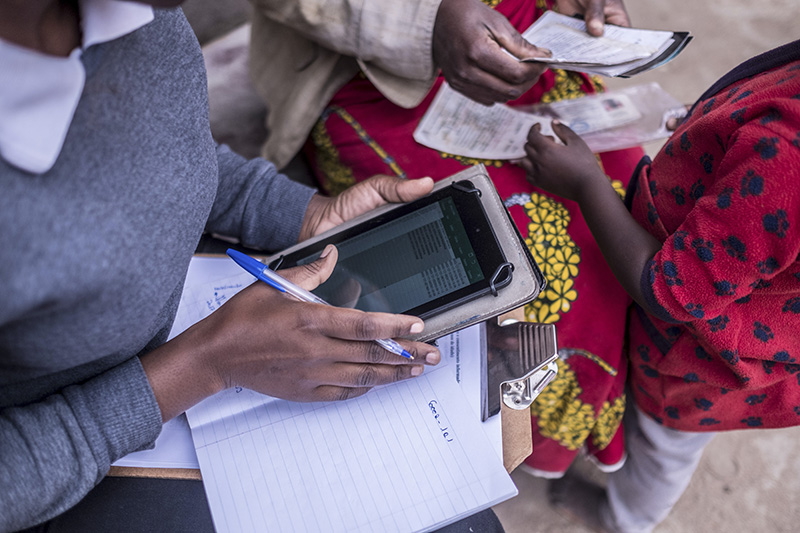Overview
IFPRI has pioneered work on rigorous economic simulation modeling of food systems to inform decision making by national governments, funding partners, and other stakeholders. IFPRI-led models analyze impacts of policy and investment options on nutrition, poverty, social inclusion, climate change, and the environment under real-time shocks (such as COVID-19 and the conflict in Ukraine) and under alternative future scenarios (including different socioeconomic and climate change trajectories). Three complementary modeling systems focus on different geographic scales (subnational to global), time scales (near-term to several decades), and sectoral scales (agriculture sector to economywide).
IFPRI’s Modeling Systems
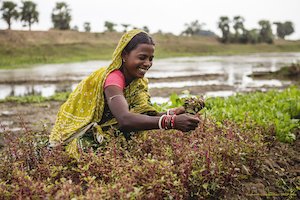
RIAPA
RIAPA (The Rural Investment and Policy Analysis data and modeling system) is IFPRI’s primary tool for forward-looking, country-level analysis. RIAPA has features that make it ideal for tracking the economywide impacts of policies, investments, or economic shocks at national and subnational levels over the near-to-medium term. RIAPA tracks changes in growth and employment across and beyond the food system, as well as poverty and food security at the household level.
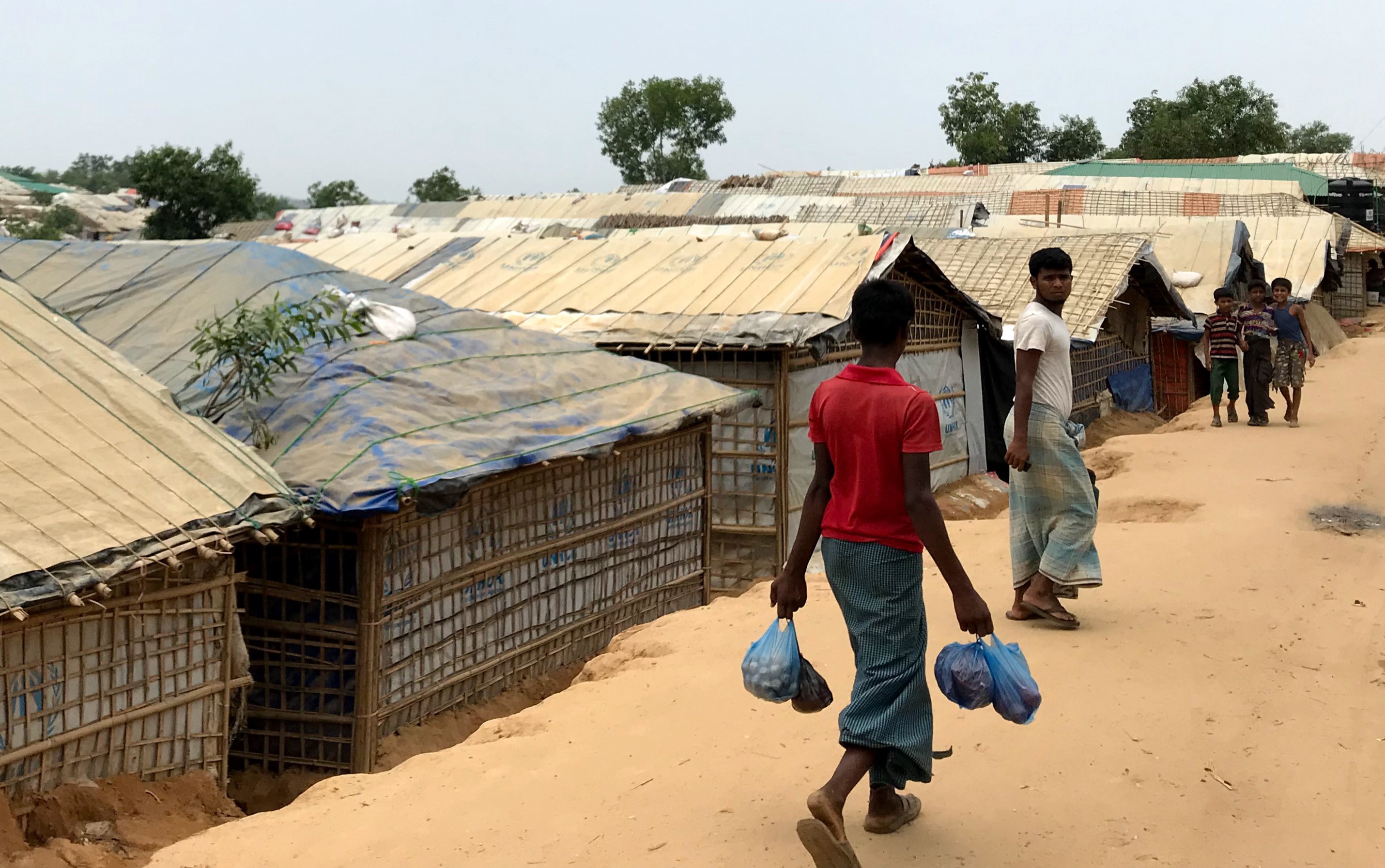
MIRAGRODEP
MIRAGRODEP is a global Computable General Equilibrium (CGE) model that captures international economic linkages through the international trade of goods, as well as through the movement of people and capital. MIRAGRODEP provides a rich set of indicators for each region, which allows measurement of the impact of policy changes on both macroeconomic aggregates and inequality indicators over the near-to-medium term.
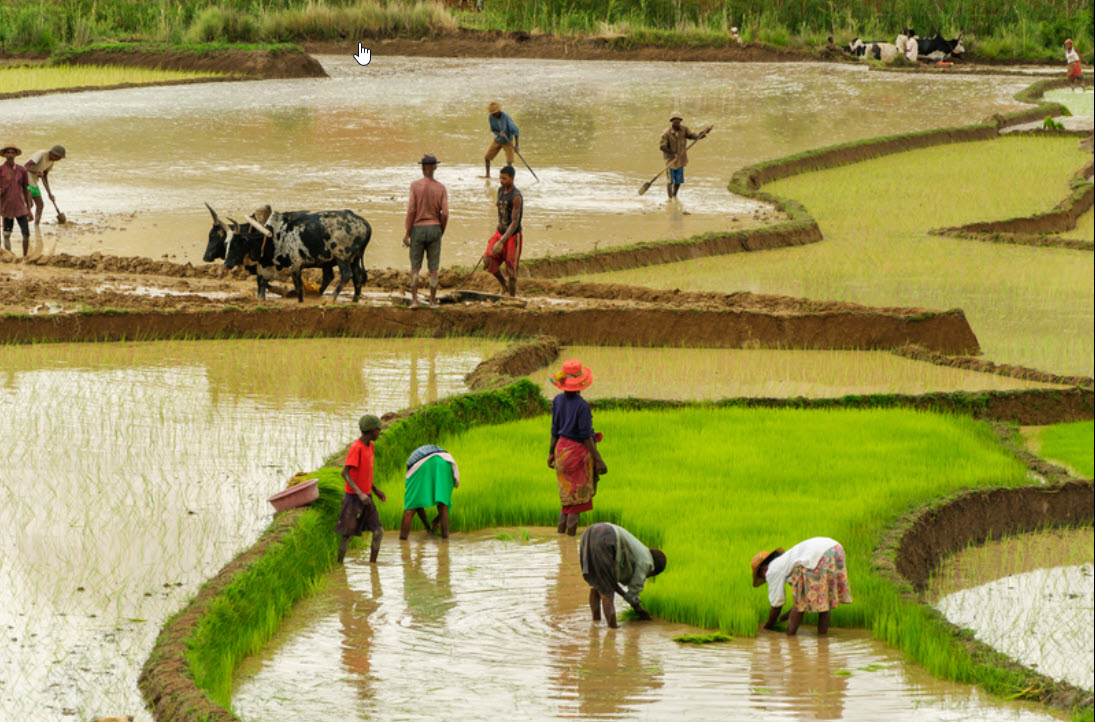
IMPACT
IMPACT (the International Model for Policy Analysis of Agricultural Commodities and Trade) is a system of linked economic, water, and crop models for analysis of climate change and other long-term drivers of the global food system. IMPACT focuses on the agriculture sector at subnational to global scales (including 60 commodities in 158 countries) over the medium-to-longer term (several decades).
Other modeling frameworks supported by IFPRI
DREAMpy (Dynamic Research EvaluAtion for Management, python version)
Open source, user-friendly software for evaluating the economic impacts of agricultural research and development projects.
MINK
A global-scale, systematically geographically gridded, process-based crop simulation modeling system.
SPAM (Spatial Production Allocation Model)
Open source, user-friendly software for evaluating the economic impacts of agricultural research and development projects.
Models Webinar Series
In this webinar series, our researchers present insights from IFPRI’s key modeling systems and their outputs, developed with other CGIAR Centers and partners. This work is helping to answer the critical questions facing decision-makers and stakeholders in today’s agrifood systems: What does climate change mean for the future of agriculture? How do we prioritize different agrifood system policies and investments? What are the sources, impacts, and trade-offs of agricultural productivity growth? What policy steps should governments take when a crisis strikes and a rapid response is required?
Related Blogs
-
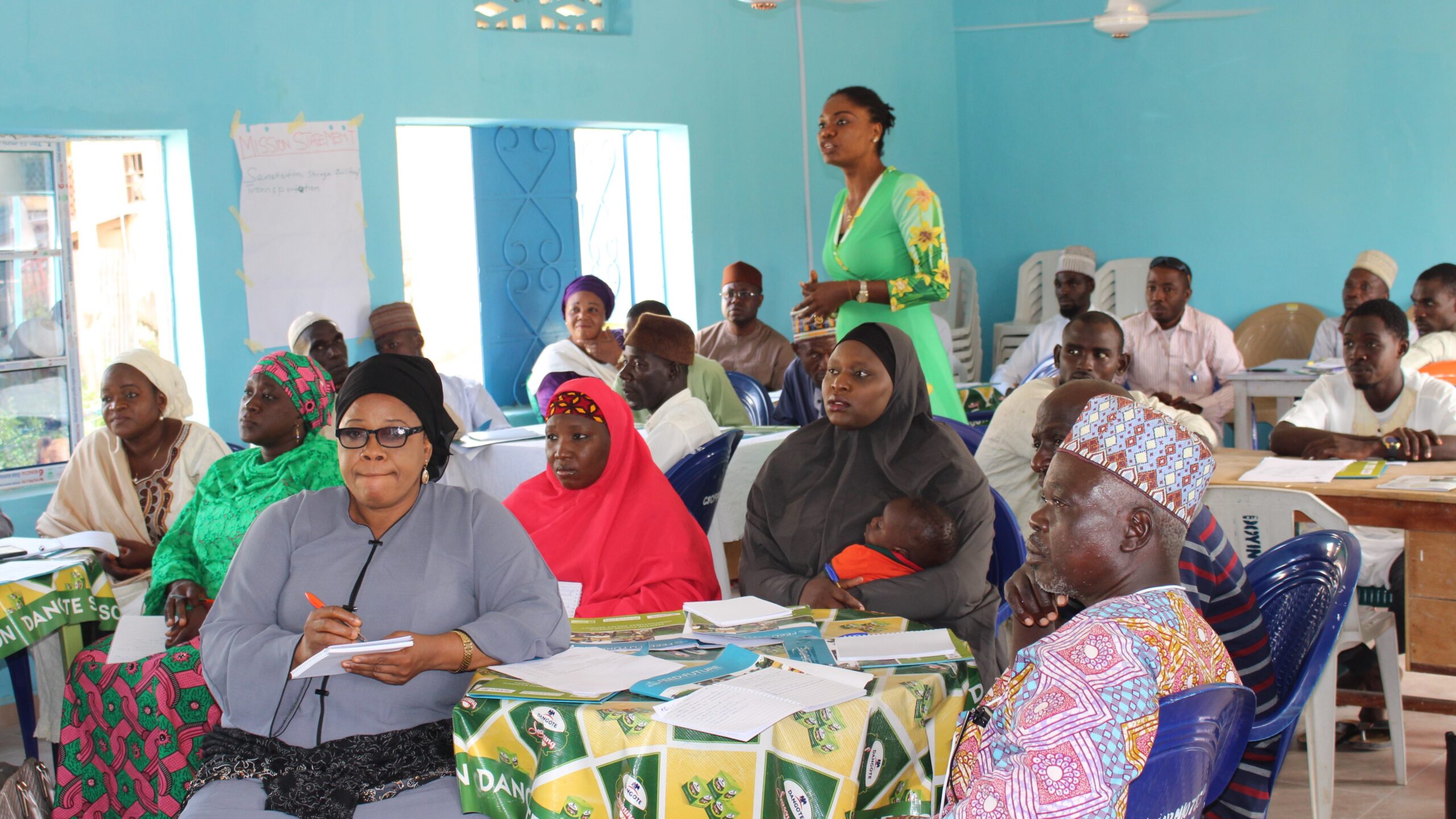
50th Anniversary Impact Assessment Report: IFPRI’s capacity sharing work
Strengthening of capabilities of individuals and institutions.
-
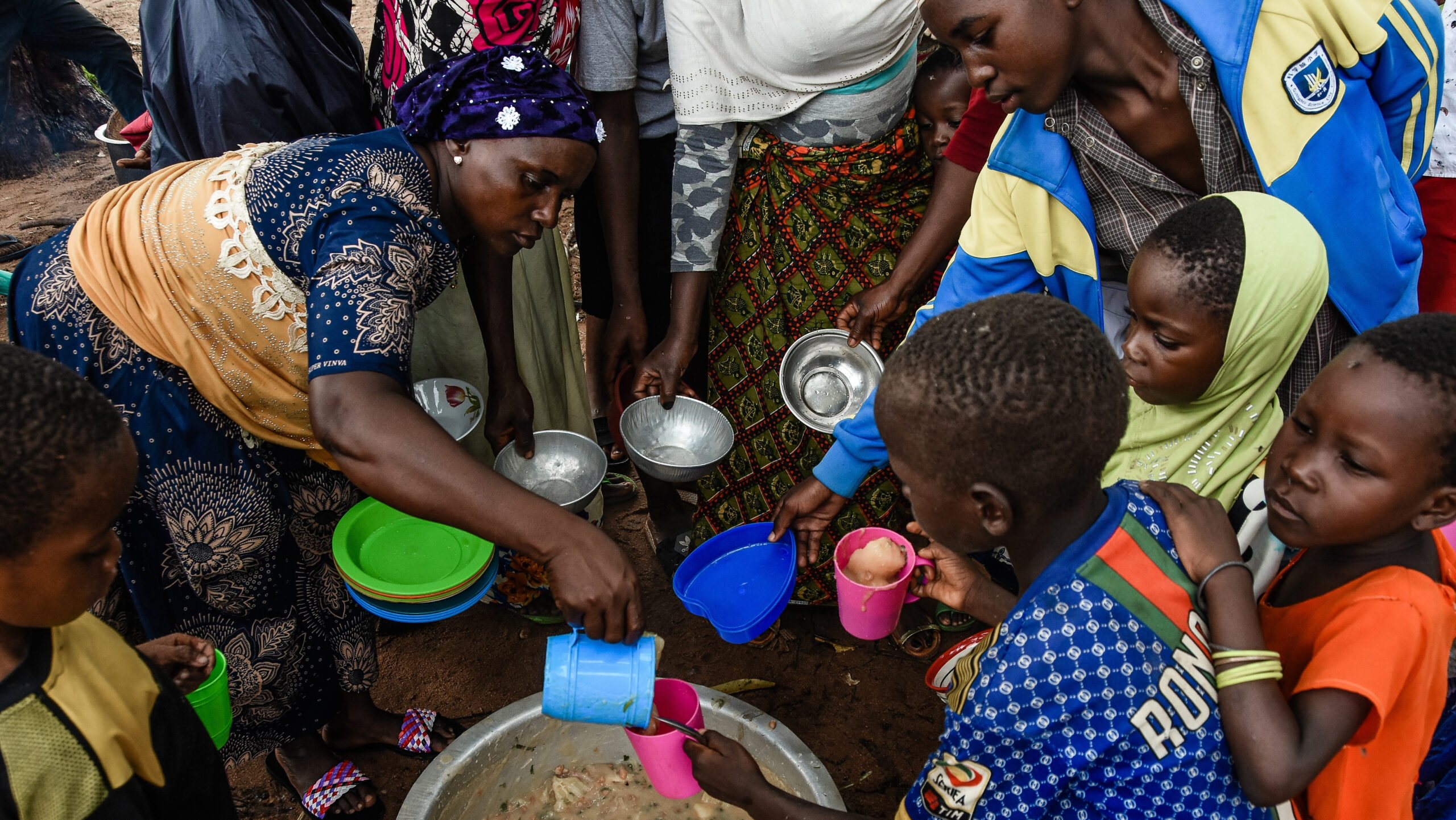
How natural language processing and AI can help policymakers address global food insecurity
Scaling up data analysis to meet SDG2.
-
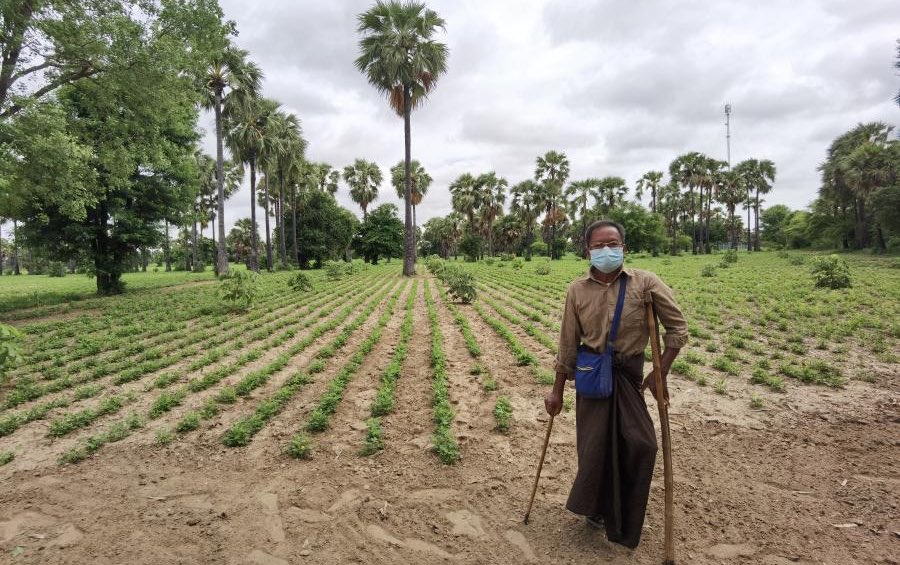
50th Anniversary Impact Assessment Report: IFPRI’s academic contributions
A wide-ranging research agenda.
Related News
-
Sudan: how warring factions gained influence in the country’s food system – and what it means for the current conflict (The Conversation)
The importance of understanding the political economy incentives that drive large-scale conflict.
-
IFPRI and Farm Radio International collaborate to give a voice to the most vulnerable farmers by advancing AI tools for African languages
Introducing Longa, an AI-powered speech recognition tool designed to strengthen agricultural communication and inclusivity across sub-Saharan Africa.
-
Can digital cash transfers serve those in active conflict zones? (VoxDev)
Digital cash transfers can be delivered even in active conflict settings like Sudan and can significantly protect vulnerable households from worsening food insecurity, though their impacts vary by context and…
Related Events
-
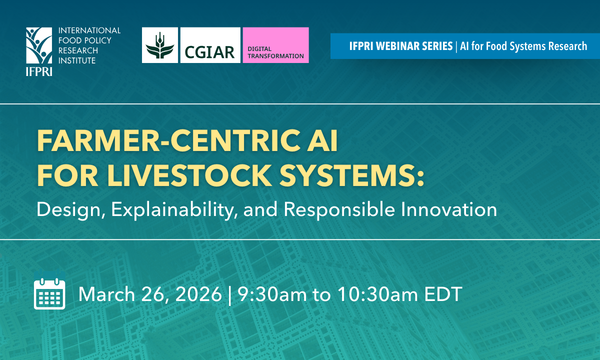
Farmer-Centric AI for Livestock Systems: Design, Explainability, and Responsible Innovation
As AI tools begin to influence livestock production, health management, and advisory services, ensuring these technologies are farmer-centric, explainable, and context-appropriate is essential. This webinar brings together researchers working at the intersection of livestock systems, digital innovation, and responsible AI to explore how AI can be designed and deployed in ways that genuinely serve livestock keepers. We begin with Karen…
-
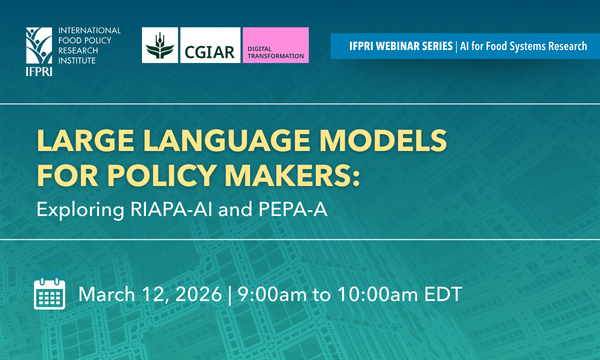
Large Language Models for Policy Makers: Exploring RIAPA-AI and PEPA-AI
As large language models (LLMs) begin to influence how evidence is generated, synthesized, and communicated, new opportunities are emerging for policymakers and analysts working in food systems. This webinar explores how generative AI tools can support policy design, analysis, and dialogue—bridging technical modeling and real-world decision-making. Askar Mukashov, Research Fellow at IFPRI, will introduce RIAPA-AI, an extension of the Rural Investment and…
-
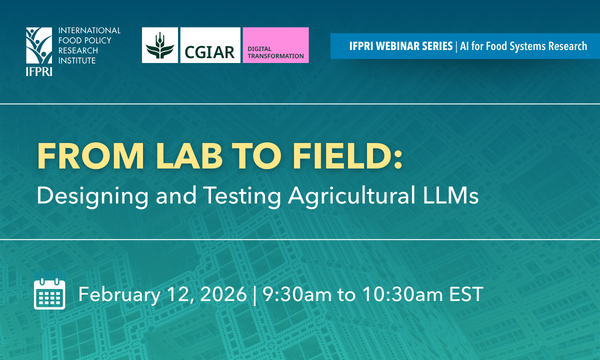
From Lab to Field: Designing and Testing Agricultural LLMs
As interest in large language models (LLMs) for agricultural advisory grows, developers face two critical questions: How should these tools be built to meet the specific needs of farmers? and How should they be tested? This webinar brings together two teams building agricultural LLMs through different but complementary approaches—offering a behind-the-scenes look at how AI systems are co-designed, refined, and validated with domain experts, farmers and extensionists. …
-
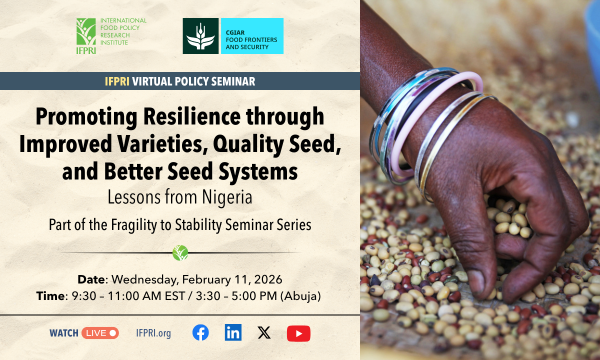
Promoting Resilience through Improved Varieties, Quality Seed, and Better Seed Systems: Lessons from Nigeria
Across sub-Saharan Africa, small-scale, resource-poor farmers are disproportionately affected by climatic and market shocks. Providing them with the tools and technologies to manage these shocks is critical to building resilience, especially in Nigeria, with its considerable diversity. This seminar will showcase novel evidence of how improved crop varieties, quality seed, and better seed systems can…




